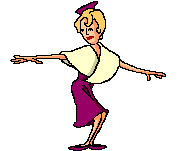Books
Writing at its best seduces. This should be the writer’s aim: to take the reader into the world of their making and convince them to stay. The urge to write begins with enticement and so should the urge to read. Writers get into writing for all manner of reasons: love, ego, boredom, money, fame. What they need to keep them in it is passion. Writing should become a compulsion. Nothing less will make that world. You want to write? Then make it something you can’t be without. “Language is wine upon the lips,” said Virginia Woolf. So it should be with anyone who puts words on the page.
Think back to when you first learnt to read. Sound out the vowels and consonants. Remember how those letters you laboured over looked to you on the page. It’s not just a cerebral thing, forming words. There are curves and lines that took time to learn – at first your hand was scrappy and the pencil awkward, slowly you learnt to form the letters. Most likely, the first thing you learnt to write was your own name. Then they were more than just rote-learned symbols and laborious alphabet recitations. Suddenly you had some ownership over those letters – lines and curves on a page that signified you. You built those letters up into words and you had language. To succeed, a writer has to love what language can create. The reader won’t stir to the efforts of a half-hearted lover. They have to take words and make of them something new. They have to take what they see, smell, hear, taste and touch and make it real. What is it that they want the reader to experience? How are they going to get them there? With words. It started as straggly scrawl – lines on a page – but once you make letters into words and words into language, it becomes something new entirely. It is a tool to communicate the depth, breadth, and height of every loathsome, sexy, joyous, mundane, peculiar human experience. And any new ones a writer cares to invent. Get a handle on that tool and you can do anything.
The relationship between a writer and reader is one of reciprocal need: the writer needs the gratification implicit in the reader’s desire for their words and the reader needs the writer’s words to envelop their mind. Reading can provide a fifteen-minute distraction on the train home or it can divert you from all that your life contains, making you question everything you ever accepted and believed. Why people read is as varied as why people write so a few moments’ distraction is as valuable as an experience from which they will emerge indefinitely (perhaps indefinably) altered. Everyone has become lost in a book at some time in their lives. It’s for the ever-surprising plot, the tangle of language from which it is difficult to extricate ourselves, or the slightly narcissistic search for self or sense of self-recognition, as though no one knows us like the writer. We read to learn, to disappear, to switch off, to hope that we will know our lovers a little better by reading their favourites. Consider why you read. What is it you want from a book? Is it to be distracted or diverted, entertained or irrevocably changed, to experience familiarity or lives so far removed from your own the characters could well exist on another planet?
Indifferent prose will be the reward of the indifferent writer. If that is a writer’s approach, he might write a Blake Carrington but he won’t write a Heathcliff. He won’t know the intoxication of Woolf’s wine or Emily Bronte’s capitulation to the craft to which she was held darkly in thrall. “The writer who possesses the creative gift owns something of which he is not always master – something that at times strangely wills and works for itself,” wrote Charlotte Bronte, introducing her sister’s book. “Be the work grim or glorious, dread or divine, you have little choice left but quiescent adoption. As for you – the nominal artist – your share in it has been to work passively under dictates you neither delivered nor could question – that would not be uttered at your prayer, nor suppressed nor changed at your caprice.”
Writing need not be one’s oxygen. It need not be a near-death experience for the writer or those around her. It isn’t necessary to feel, as Virginia Woolf did, that the only thing keeping her alive was writing, rendering her suicidal at the end of every book so she was forced to start another till finally she succumbed to the waters of the river Ouse. Anaïs Nin wrote of herself, “I am truly mute without writing”. Reading romance, you can fall in love with a character without, as Mary Wollstonecraft feared all women would, abandoning all educational aspirations and settling for marriage to a winsome cad. Elizabeth Smart lost everything to her muse, George Barker, ravenous for both the man and his work. Scott Fitzgerald robbed Zelda of far more than her wealth in a bid to stop her writing, but still she wrote. I could go on: the road of great writing is littered with those who’ve suffered for their craft through poverty, broken marriages, nervous breakdowns, suicides, obsessions, violence, and perversity. That is the way creativity worked for them. But aping the antics of writers one admires never made anyone great. Writers have to find their own way to seduce, to lure the reader into their world and always remember that purpose. Writing doesn’t need affectation – it needs passion.
The writers in the best books list got it right – their passion is palpable. In the worst books list, it’s conspiculously absent.


























